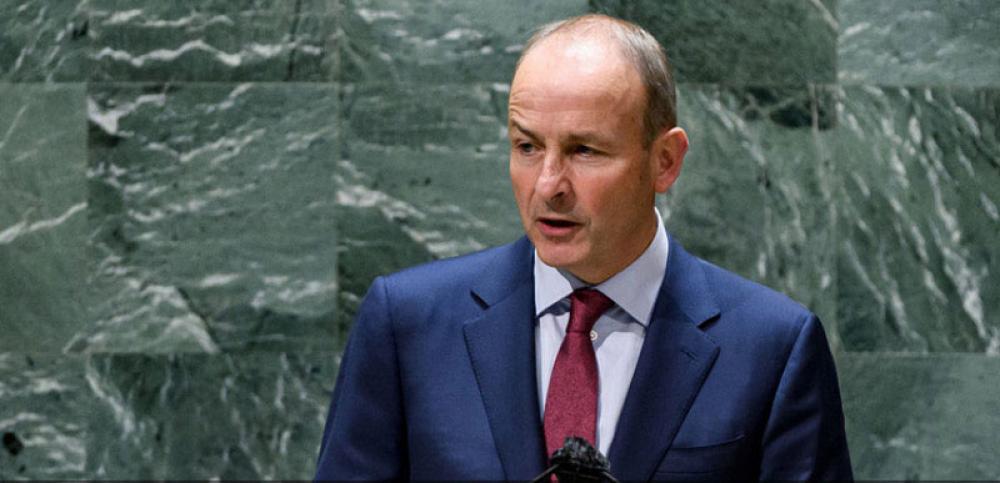Just Earth News | @justearthnews | 25 Sep 2021

Image: UN Photo/Loey Felipe
New York: Looking back over the first four days of the high-level week, the Ireland’s Prime Minister said a series of alarms have sounded in the Hall of the General Assembly: for conflict, for COVID, for climate.
“We have heard the alarms. Now we must respond,” said Micheál Martin. “I believe that this is what the General Assembly, our Assembly of Nations, was created to do. Our purpose, our obligation.”
For the Irish leader, “the simple fact” is that the world “cannot succeed in addressing these global challenges without a strong, effective and fair multilateral system.”
COVID-19 response
The Prime Minister also said that “vaccine inequity is a moral test” for the global community.
He pointed to the rapid establishment of COVAX and the ACT Accelerator, saying this represents multilateralism at its best, and the only way to meet the target of a fully vaccinated world by mid-2022.
According to Mr. Martin, Ireland is in the process of donating 1.3 million vaccine doses to low income countries, mainly through COVAX. It is also preparing a “significant donation” for 2022. The country support to global health since the outbreak of the pandemic has reached over €200 million.
He highlighted the role of the UN World Health Organisation (WHO), saying it should remain at the heart of the global response, and informed that Ireland has quadrupled the funding to the agency in response to the pandemic.
Lessons from the pandemic
Reflecting on the past 18 months, the Prime Minster said one thing is clear: “The pandemic caught the world off-guard”
“It has put into stark relief the simple, and regrettable, fact that we have not made sufficient progress in reducing poverty, in increasing access to quality health care and education, nor, in combatting the climate crisis,” he said.
He argued that, had the world made more progress in the Sustainable Development Goals (SDGs), societies “would have been more resilient, better prepared to weather the storm, and lives would have been spared.”
Security Council membership
Since the beginning of the year, Ireland has occupied one of the non-permanent seats in the UN Security Council.
“Every day for the last nine months, we have sought to use our voice, to defend our principles, and to make progress towards the peaceful resolution of some of the world’s most pressing conflicts,” the Irish leader said.
He recalled his own country’s history with conflict, saying it thought Irish people that “building peace is painstaking, long and often frustrating.”
He said that progress has not always been possible and that, too often, the Council has been divided.
“It is a lesson hard learned that when we, in this building, are divided, it is the most vulnerable who suffer the consequences,” he said, pointing to the cases of Syria and Tigray.
Ireland’s contribution
On Thursday, Mr. Martin chaired a Security Council debate on climate and security. For him, “there is no time to waste” and that is why, in the coming days, Ireland will convene a discussion on a thematic resolution on climate and security.
Looking ahead to COP26, the UN Climate Conference taking place in early November, he said that all Member States should “muster the courage to take bold and ambitious action.”
For its part, Ireland will reduce emissions by 51 per cent by 2030 compared to 2018 levels. Along with its partners in the European Union, the country will achieve net neutrality by 2050.
“Ireland will continue to play our part, to build consensus and to advocate fiercely for the multilateral system and the people we have pledged to serve,” Mr. Martin concluded.